Buy Self-Injury Assessment & Treatment -Clinical Strategies When Your Client’s Answer to Pain Brings More Pain – David G. Kamen Course at GBesy. We actively participate in Groupbuys and are committed to sharing knowledge with a wider audience. Rest assured, the quality of our courses matches that of the original sale page. If you prefer, you can also buy directly from the sale page at the full price (the SALEPAGE link is directly provided in the post).
Self-Injury Assessment & Treatment -Clinical Strategies When Your Client’s Answer to Pain Brings More Pain by David G. Kamen,
Salepage link: At HERE. Archive:
- Faculty:
- David G. Kamen
- Duration:
- 6 Hours 6 Minutes
- Format:
- Audio and Video
- Copyright:
- Sep 15, 2017
Description
Whether the behavior is cutting, burning, piercing, starving, purging, head banging, or some other method, self-harming behaviors and the emotions underlying them know no bounds with respect to race, ethnicity, age, socioeconomic class, or gender. Feeling shame and embarrassment, those who engage in self-harm may privately console themselves, or befriend other self-injurious peers – which can further intensify the lethality and suicidal intent of their acts. Studies show that professionals who work with adults and youth who self-injure find it to be one of the most challenging psychological issues to treat.
David Kamen, PhD, will equip you with practical, evidence-based tools to assess and treat deliberate self-harm, along with other co-morbid psychiatric disorders including major depressive disorder, obsessive-compulsive disorder, eating disorders, and substance abuse. Effective triage, coordination of care, and risk-management practices for your work with self-injury patients, their parents, families, and friends will be addressed.
The theoretical and cultural reasons for this epidemic will be explored. Practical approaches that work for individual, group, and family psychotherapy in inpatient, outpatient, school, and community settings will be shared, along with resources to prepare professionals and caregivers to help those who engage in self-injury.
Handouts
| Manual – Self-Injury Assessment & Treatment (12.64 MB) | 78 Pages | Available after Purchase |
Outline
SELF-INJURY DIAGNOSIS AND TREATMENT COORDINATION
- Review the spectrum of self-injurious behaviors
- Epidemiology of adult and youth self-injury
- Triage of self-Injury, including:
- Level-of-care assessment
- Lethality risk- and protective-factor assessment
- Functional behavioral analysis of self-injury
- DSM-5® and ICD-10 diagnostic advances
- Mental status examination
- Identification and treatment of co-morbid disorders
- Treatment planning
- Coordination of care amongst mental health professionals, educators, and healthcare professionals
- Specialized clinical personality and art therapy assessment
COGNITIVE-BEHAVIORAL, NEUROBIOLOGICAL, FAMILY SYSTEMS, AND PSYCHODYNAMIC ASSESSMENT AND TREATMENT APPROACHES:
- Motivational interviewing; development of therapeutic alliance
- Exposure with response prevention to extinguish self-injurious behaviors
- Dialectical behavior therapy tactics
- Coping skills to break the habit of self-injury
- Intersubjective and interpersonal therapeutic communication techniques
- The corrective emotional experience and empathic dialogue
- Exposure and resolution of self-injury defense mechanisms
PROFESSIONAL ETHICS, CASE MANAGEMENT, AND LIABILITY RISK MANAGEMENT
- Review of bioethical and legal risk management principles, including
- HIPAA compliance, duty-to-warn issues; ethical and legal dilemmas
- Tips for:
- Professional self-care
- Peer-to-peer collaboration and supervision, to prevent clinician burnout and vicarious traumatization
REVIEW OF PROFESSIONAL, PATIENT, AND CONSUMER-FOCUSED INTERNET RESOURCES AND APPS FOR:
- Self-injury psychoeducation
- Clinical assessment
- Motivational and therapeutic alliance-assessment
- Mental health case law and professional ethics websites
- Self-monitoring of self-injury thoughts, feelings, and behaviors
- Internet resources that are immediately usable for schools, parents, and clients
- Educational and therapeutic use of social networking sites
- YouTube
- Other
Faculty
David G. Kamen, PH.D. Related seminars and products: 2
David Kamen, Ph.D., is a clinical psychologist licensed in New Hampshire and Massachusetts, where he works regularly with adults, adolescents, and children who engage in self-injurious behavior. He has worked with professionals and educators through his practice, and through his work in community mental health and emergency room settings. In full-time practice for many years, Dr. Kamen has been counseling self-injurious patients through individual and group therapy formats, using psychodynamic, cognitive-behavioral and family systems approaches.
Dr. Kamen has also served as a forensic psychologist to address the issues of self-injury in victims of child abuse and neglect. His research has been presented at the International Society for the Study of Self-Injury (ISSS), the American Psychological Association (APA), Saint Anselm College of Nursing, Continuing Education, and featured in The International Journal of Behavioral Consultation and Therapy, as well as The New Hampshire Trial Bar News. Dr. Kamen has been teaching continuing education workshops on the treatment of self-injury since 2009, and is currently writing a book on self-injury.
Speaker Disclosures:
Financial: David Kamen has an employment relationship with The Counseling Center of Nashua. He receives a speaking honorarium from PESI, Inc.
Non-financial: David Kamen is a member of the American Psychological Association.
Buy the Self-Injury Assessment & Treatment -Clinical Strategies When Your Client’s Answer to Pain Brings More Pain – David G. Kamen course at the best price at GBesy.. After your purchase, you will get access to the downloads page. You can download all the files associated in your order at here and we will also send a download notification email via your mail.
Unlock your full potential with Self-Injury Assessment & Treatment -Clinical Strategies When Your Client’s Answer to Pain Brings More Pain – David G. Kamen courses. our courses are designed to help you excel.
Why wait? Take the first step towards greatness by purchasing Self-Injury Assessment & Treatment -Clinical Strategies When Your Client’s Answer to Pain Brings More Pain – David G. Kamen courses today. We offer a seamless and secure purchasing experience, ensuring your peace of mind. With our trusted payment gateways, Stripe and PayPal, you can confidently complete your transaction knowing that your financial information is protected.
Stripe, known for its robust security measures, provides a safe and reliable payment process. With its encrypted technology, your sensitive data remains confidential throughout the transaction. Rest assured that your purchase is protected.
PayPal, a globally recognized payment platform, offers an additional layer of security. With its buyer protection program, you can feel confident in your purchase. PayPal ensures that your financial details are safeguarded, allowing you to focus on your learning journey.
Is it secure? to Use of?
- Your identity is completely confidential. We do not share your information with anyone. So it is absolutely safe to buy the Self-Injury Assessment & Treatment -Clinical Strategies When Your Client’s Answer to Pain Brings More Pain – David G. Kamen course.
- 100% Safe Checkout Privateness coverage
- Communication and encryption of sensitive knowledge
- All card numbers are encrypted using AES at relaxation-256 and transmitting card numbers runs in a separate internet hosting atmosphere, and doesn’t share or save any data.
How can this course be delivered?
- After your successful payment this “Self-Injury Assessment & Treatment -Clinical Strategies When Your Client’s Answer to Pain Brings More Pain – David G. Kamen course”, Most of the products will come to you immediately. But for some products were posted for offer. Please wait for our response, it might take a few hours due to the time zone difference.
- If this happens, please wait. The technical department will process the link shortly after. You will receive notifications directly by e-mail. We appreciate your wait.
What Shipping Methods Are Available?
- You will receive a download link in the invoice or YOUR ACCOUNT.
- The course link always exists. use your account to login and download the Self-Injury Assessment & Treatment -Clinical Strategies When Your Client’s Answer to Pain Brings More Pain – David G. Kamen course whenever you need.
- You only need to visit a single link, and you can get all the Self-Injury Assessment & Treatment -Clinical Strategies When Your Client’s Answer to Pain Brings More Pain – David G. Kamen course content at once.
- You can do your learning online. You can be downloaded for better results and can study anywhere on any device. Make sure your system does not sleep during the download.
How Do I Track Order?
- We always notice the status of your order immediately after your payment. After 7 days if there is no download link, the system will automatically complete your money.
- We love to hear from you. Please don’t hesitate to email us with any comments, questions and suggestions.
![GBesy [GB] GBesy [GB]](https://www.gbesy.com/wp-content/uploads/2023/05/gbesy-Logo-full-100.png)
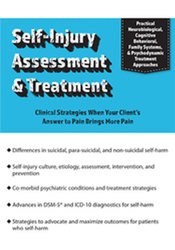
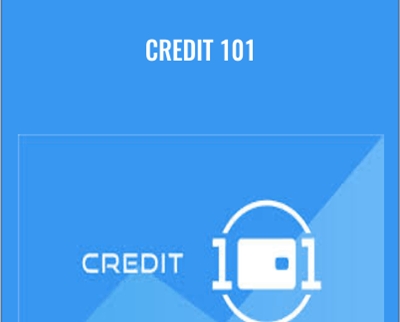

 Purchase this course you will earn
Purchase this course you will earn 
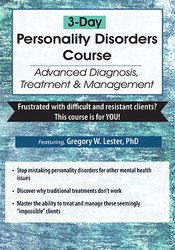
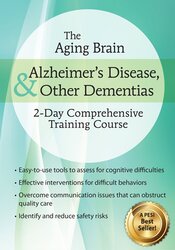
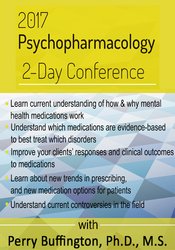
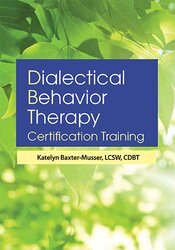

Reviews
There are no reviews yet.